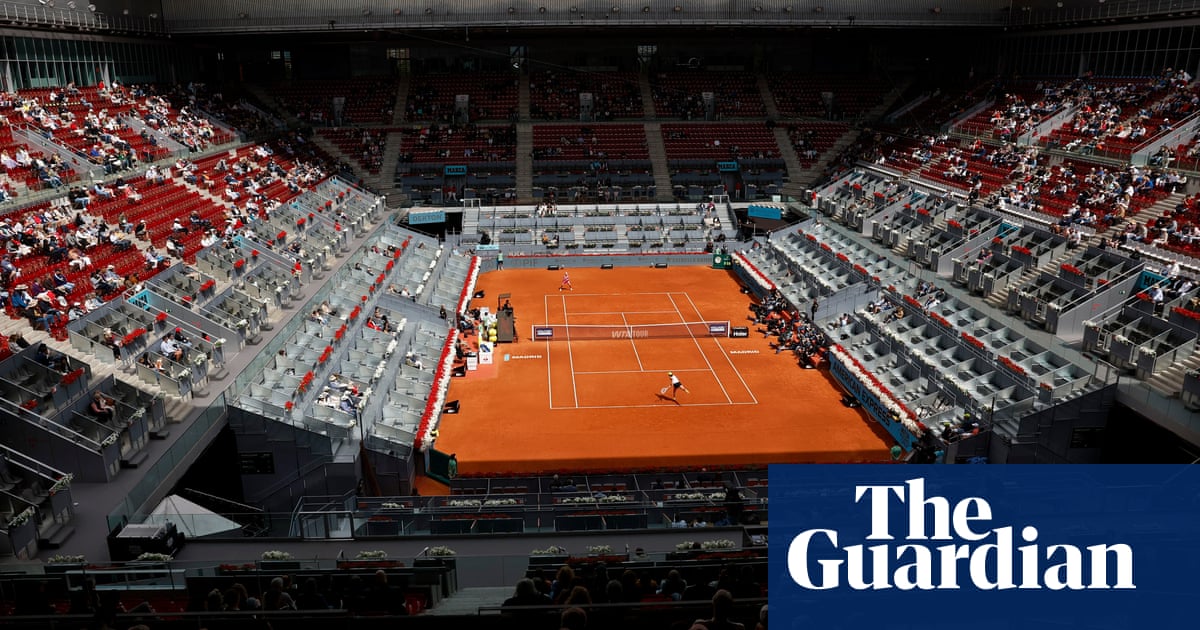The Madrid Open resumed on Tuesday afternoon after a massive power outageleft Spain and Portugal without electricity on Mondayand forced the tournamentto suspend all matchesafter 90 minutes of play. After about 10 hours without electricity and mobile internet for most people in Madrid, power to homes and phones returned late on Monday night, prompting widespread cheers in the streets. However, the Caja Mágica, which is situated in the southern neighbourhood of San Fermín, remained without power overnight.
At 7am, the Madrid Open announced that the opening of the gates had been delayed. An hour later, power was finally restored. Although play normally begins at 11am, it started at noon on Tuesday.
Nearly 24 hours after Grigor Dimitrov and Jacob Fearnley had been forced to halt their third-round match at 6-4, 5-4, the defending champion, Iga Swiatek, entered Manolo Santana Stadium at noon as scheduled to face Diana Shnaider, the 13th seed, for a place in the quarter-finals.
On Monday, many of the players had attempted to play through the power outage, with Mirra Andreeva closing out her victory over Yulia Starodubtseva without live electronic line calling or line umpires and players calling their own lines. Coco Gauff was conducting her on-court interview after her win over Belinda Bencic when the power cut began.
Dimitrov had held a match point against Fearnley and then he served for the match at 6-4, 5-3 before losing his serve. Fearnley’s converted break point would turn out to be the final point of the day. Play was halted after they were unable to move the overhead camera that had settled low above the court.
Sign up toThe Recap
The best of our sports journalism from the past seven days and a heads-up on the weekend’s action
after newsletter promotion
Inside the venue, which is mostly indoors, spectators relied on lights from their phones to navigate the grounds. Due to the massive demand and significant traffic on the roads, many players did not return to their accommodation until late in the evening. Some opted for the journey of more than two hours back home by foot, even though they needed to be fresh and ready to compete again on Tuesday.
